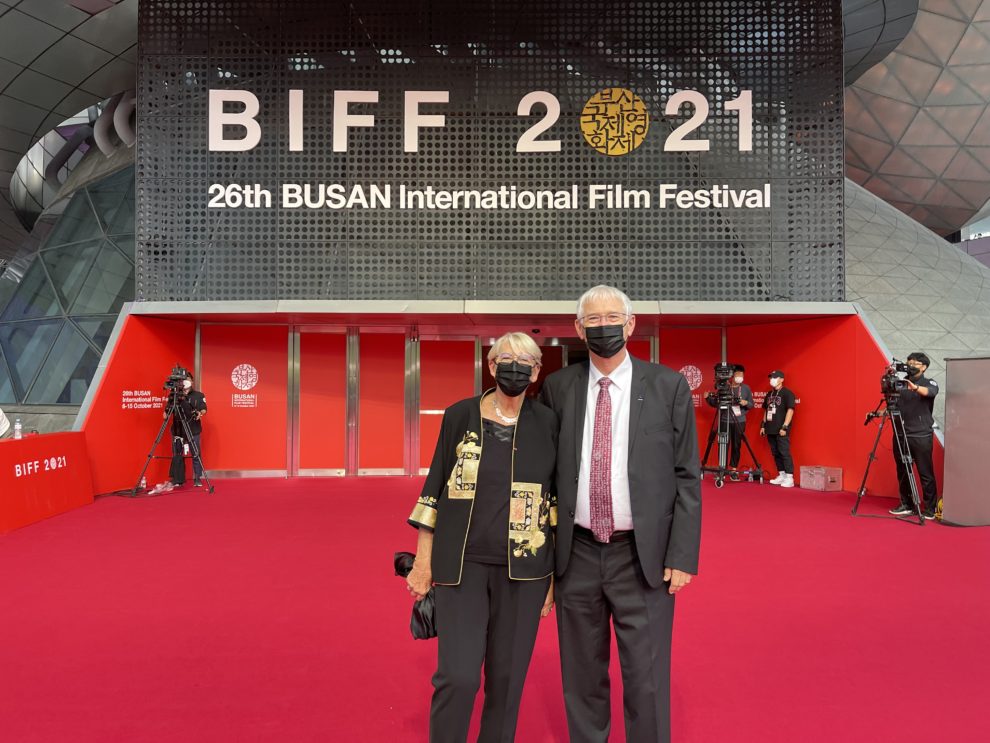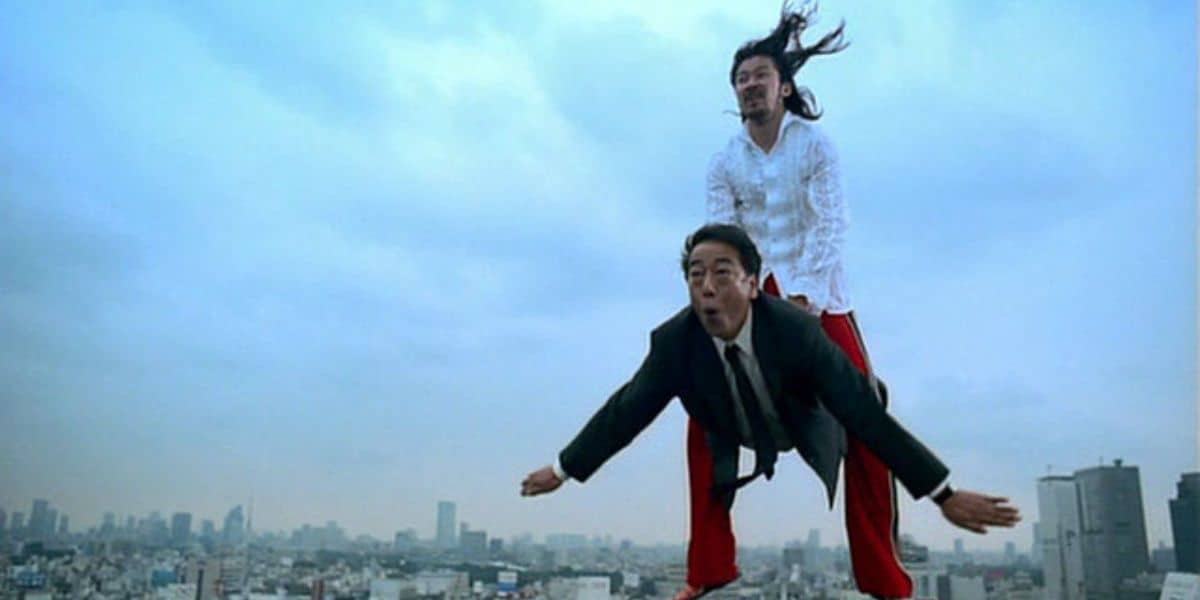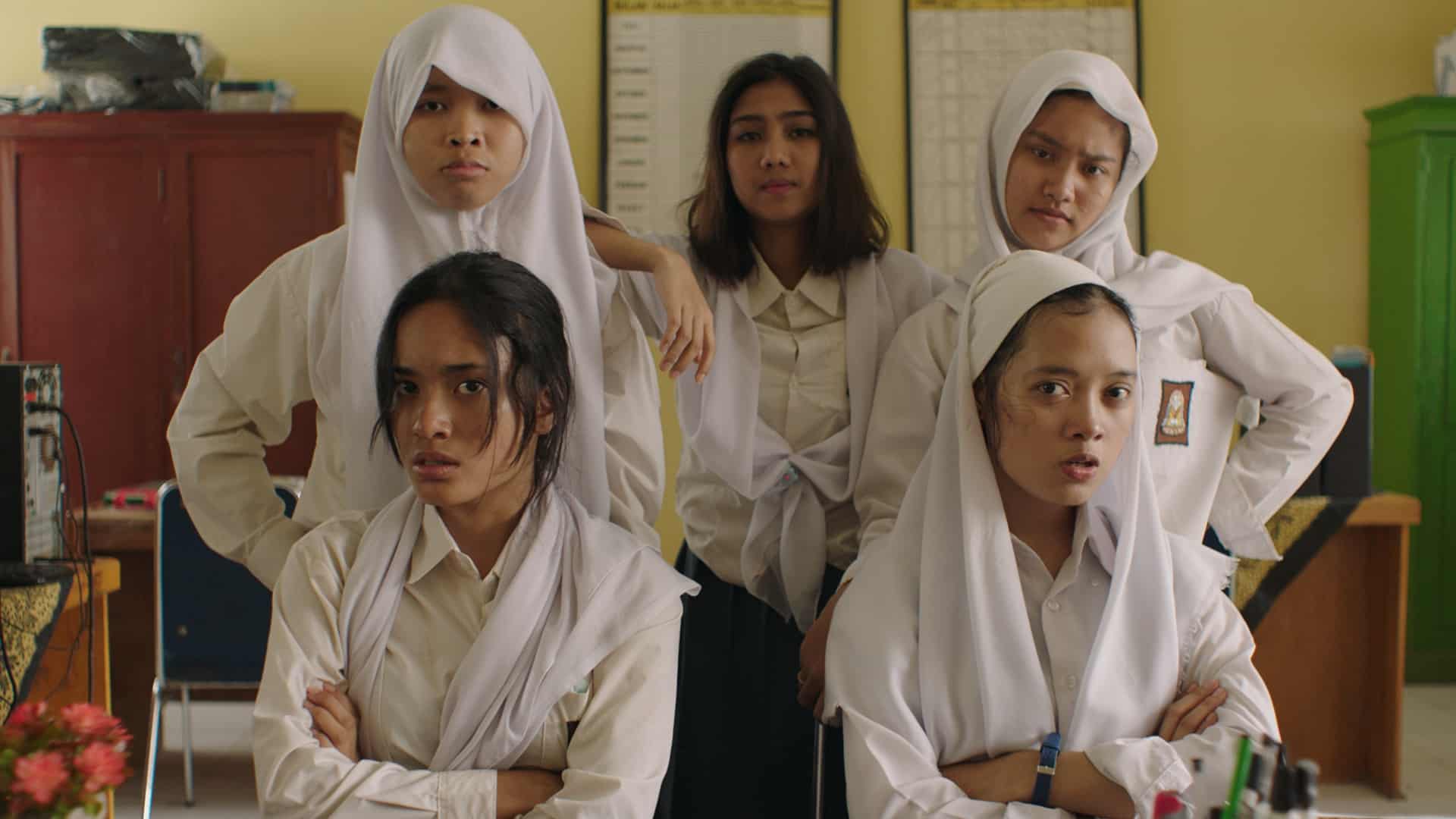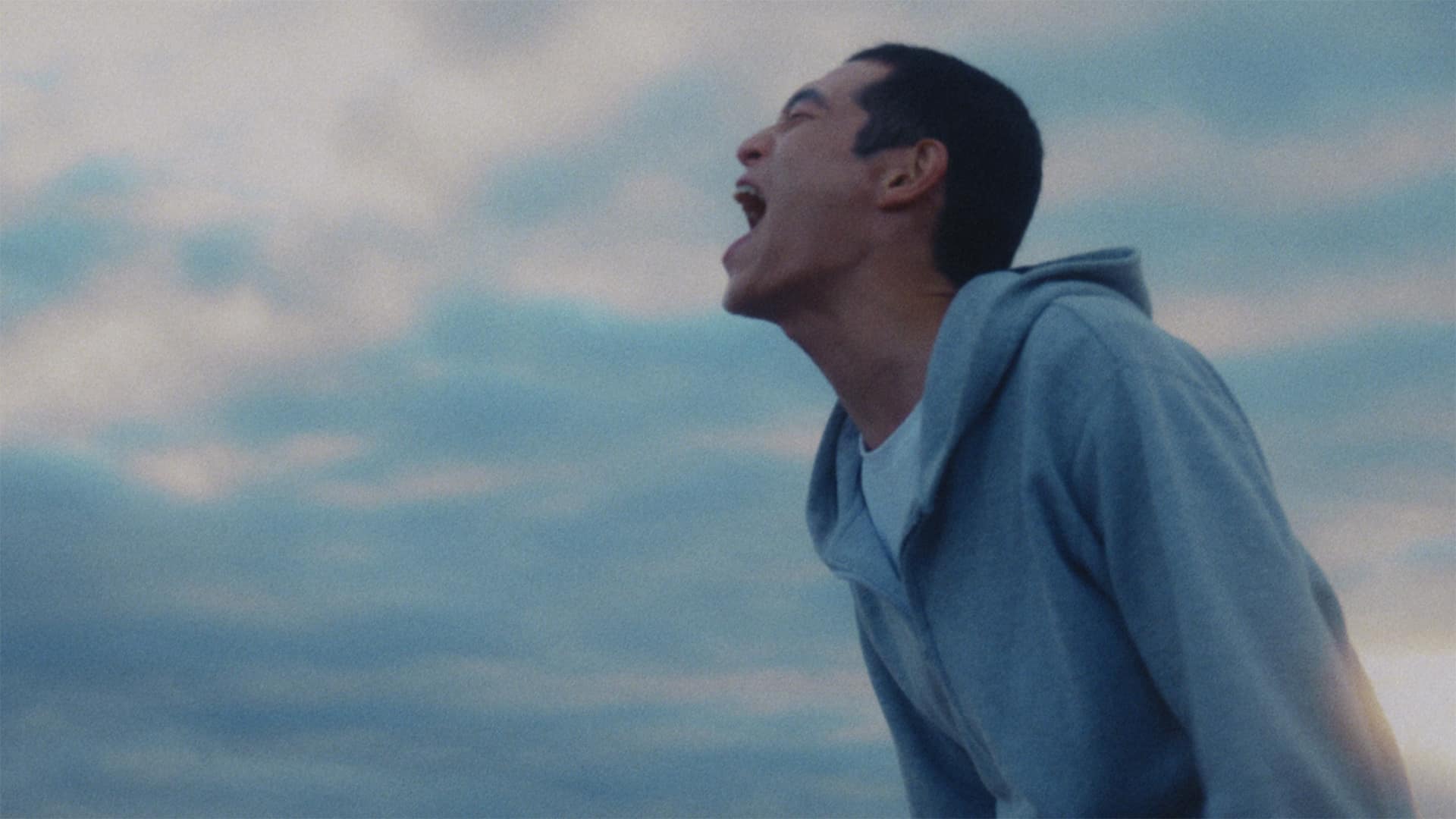Jean-Marc Thérouanne has a BA in Law and a MA in History, he specialised in librarianship.
He is the CEO and co-founder of Vesoul International Film Festival of Asian Cinemas created in 1995 for the celebration of hundred years of cinema.
He has been President of Jury at Silk Road International Film Festival Of Xi'an 2014 (China), Art Film Festival Of Kosice 2017 (Slovakia) and Festival Fenêtre sur Courts Of Dijon 2010 (France), a member of international juries in France and abroad : Chungmuro International Film Festival Of Seoul 2009 (Korea), Osian'Cinefan Of New-Delhi 2009 (India), Cinemalaya Philippine Independent Film Festival Of Manila (Philippines),… and his action for cinema granted him several decorations such as : Korean Cinema Award (2018), Officier des Palmes Académiques (2018), Chevalier des Arts et Lettres (2003), as well as Medal of Oriental Languages (2006), Chevalier des Palmes Académiques (2007), Medal of Francophonia (2009), Cultural Award France-Korea (2011), Medal of Honor of the city of Vesoul (2014), Trophy France-Korea (2016), Medal of Cinematographic Art of the Republic of Mongolia (2018).
He is a correspondent for several magazines Cinealliance, InterCDI, … and member of NETPAC (Network For The Promotion Of Asian Cinema) since 2003.
You have been attending Busan for many years. What does this festival mean to you and for Asian cinema in general ?
How did you feel with the prize awarded to you and Martine ?
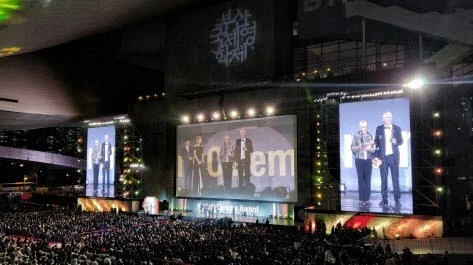
Jean-Marc Thérouanne: for eleven years we have been going to the Busan International Film Festival. In 2010, during the 15th BIFF, my wife Martine Thérouanne, was invited as a member of the Netpac Jury. It was a wonder, all the directors whom we love, were there. Busan is the Cannes of Asia.
Eight years later, on October 4, 2018, we received the prestigious Korean Cinema Award from Lee Young-kwan, chief director and Jay Jeon, director, at the opening ceremony of the 23rd BIFF in front of 4,000 spectators and the national and international media present.
What touched us the most was that the leaders of the BIFF understood that the presentation of this prize made perfect sense by awarding it to us jointly. Our work for the knowledge and recognition of Korean cinema is intimately linked to the personal history of our couple living parity on a daily basis.
By receiving this prize, my wife had a thought for her city, Vesoul, her department, Haute-Saône, her region, Burgundy – Franche-Comté and the 630,000 spectators of the Festival International des Cinémas d'Asie who have been there since the origin of the FCIA.
When I heard that we were going to receive the honorary Korean Cinema Award, I immediately wanted to thank the “Righteous” who thought our work deserved this award. “Do not expect anything, and everything will be given to you in addition,” that word of the Gospel that my late mother often liked to quote came back to me suddenly. I had a thoughtful thought for my parents who taught me the meaning of work and the gift of self.
Which are the most important changes you have witnessed through the years in Busan Film Festival ?
Over eleven years of the Busan festival, we have witnessed the courage it took for the BIFF team to defend the democratic values of freedom of creation, expression and dissemination during the terrible ordeal that opposed them from the government of the President of the Republic of Korea, Mrs. Park Geun-hye, and the mayor of Busan at the time, Suh Byung-soo, following the screening of the documentary film “Diving Bell, the truth shall not sink with Sewol ”by Lee Sang-hoo and Ahn Hae-ryong, dedicated to the sinking of the“ Sewol ”in 2014. This resulted in a halving of the festival's budget as BIFF turned 20 in 2015.
The human drama of the brutal death on May 18, 2017 in Cannes, of Mr. Kim Ji-seok, Deputy Director, Head of the Programming Team, BIFF, was a terrible ordeal. Kim Ji-seok was a great professional and a great programmer. He introduced Hong Sang-soo, Bong Joon-ho, Kim Ki-duk,… He had the courage to program the documentary film “Diving Bell: the truth shall not sink with Sewol”. Its disappearance could lead to a modification in the choices of the selection. The tribute that BIFF paid him both in Cannes in May and in Busan in October 2017 was particularly moving.
In 2020, as the BIFF was about to celebrate its 25th anniversary, the Covid-19 health crisis forced the Korean legislator to take all precautionary measures to stop the pandemic. The BIFF could not proceed normally.
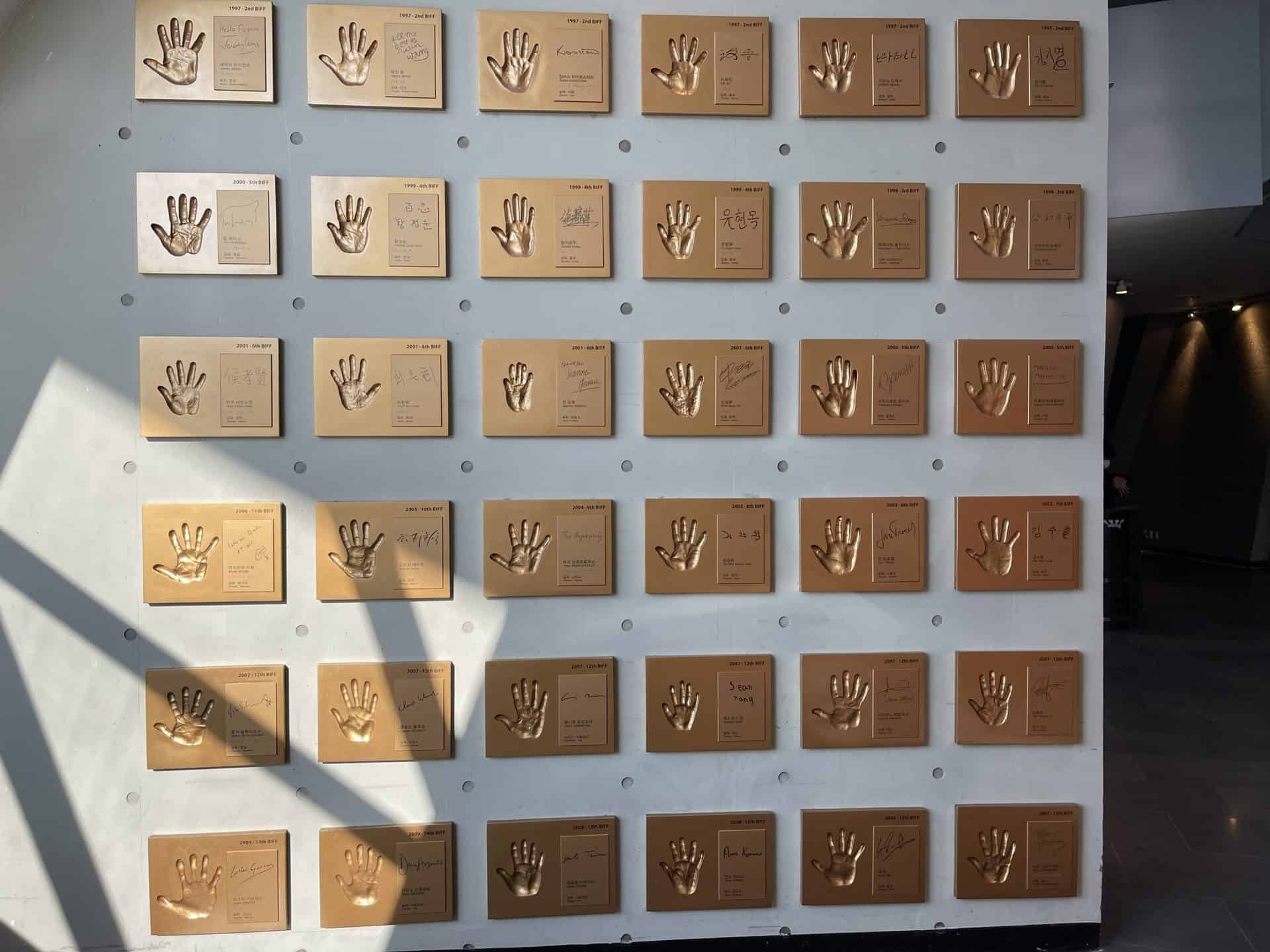
In 2021, for the 26th edition, the organizers of the BIFF made every effort to ensure that the Festival takes place in person in strict, rigorous and effective respect of sanitary rules (vaccination, systematic disinfection of the premises, in particular of the screening rooms before and after each cinema screening, systematic temperature measurement of festival-goers, presentation of the health pass before entering the festival venues, respect for distance between people, etc.). All these reassuring measures enabled the public to come back in large numbers, especially young people. The youth of the public is a mark of BIFF.
In eleven years of BIFF, we've never been disappointed with programming. Among the important changes we have seen is a significant renewal of the team over the years. Life is movement. The voluminous paper catalog has disappeared since the 24th BIFF in 2019. Personally, I find that a shame. On a practical level, it is easier to consult a paper catalog than a digital catalog. In terms of the memory of the festival, the catalog is the testimony of its existence engraved in “the marble of the paper”, if you allow me this image. This is what will remain when the fleeting moment of the duration of a festival has passed. It becomes an archive and reference document, subject to consultation. It leaves a mark.
Are there any episodes or interesting stories you would like to share ?
Each edition of the BIFF contains highlights made up, above all, of the meetings that we have. The secret of the soul of a festival lies in this expansion and intensity of lived time. In eleven days you have made hundreds of meetings. If we had not met in 2011 in Busan, Hirokazu Koreeda, we are not sure that he would have accepted our invitation to come to the 18th International Festival of Asian Cinemas of Vesoul in 2012 where we presented, in his presence, the integral of his work for the first time in the world.
The Busan International Film Festival is an extremely welcoming festival. I think the secret to the friendliness of this huge festival, one of the five largest in the world along with Cannes, Berlin, Venice and Toronto, lies in the Korean people who have a strong sense of hospitality and friendship. It's amazing to see and experience it. My wife and I have been backpacking since our teens around the world. It is in Korea that we have always found an extraordinary welcome. Korea is the country of the morning calm, it is above all that of the heart.
We went to many festivals but it is in Busan that it is easiest to approach the big names of cinema from Bong Joon-ho to Claude Lelouche, from Tsai Ming-Liang to Régis Wargnier, from Jia Zhang-ke to Oliver Stone, from Moshen Makhmalbaf to Tilda Swinton, from Hou Hsiao-hsien to Ariane Ascaride, from Brillante Mendoza to Souleymane Cissé.
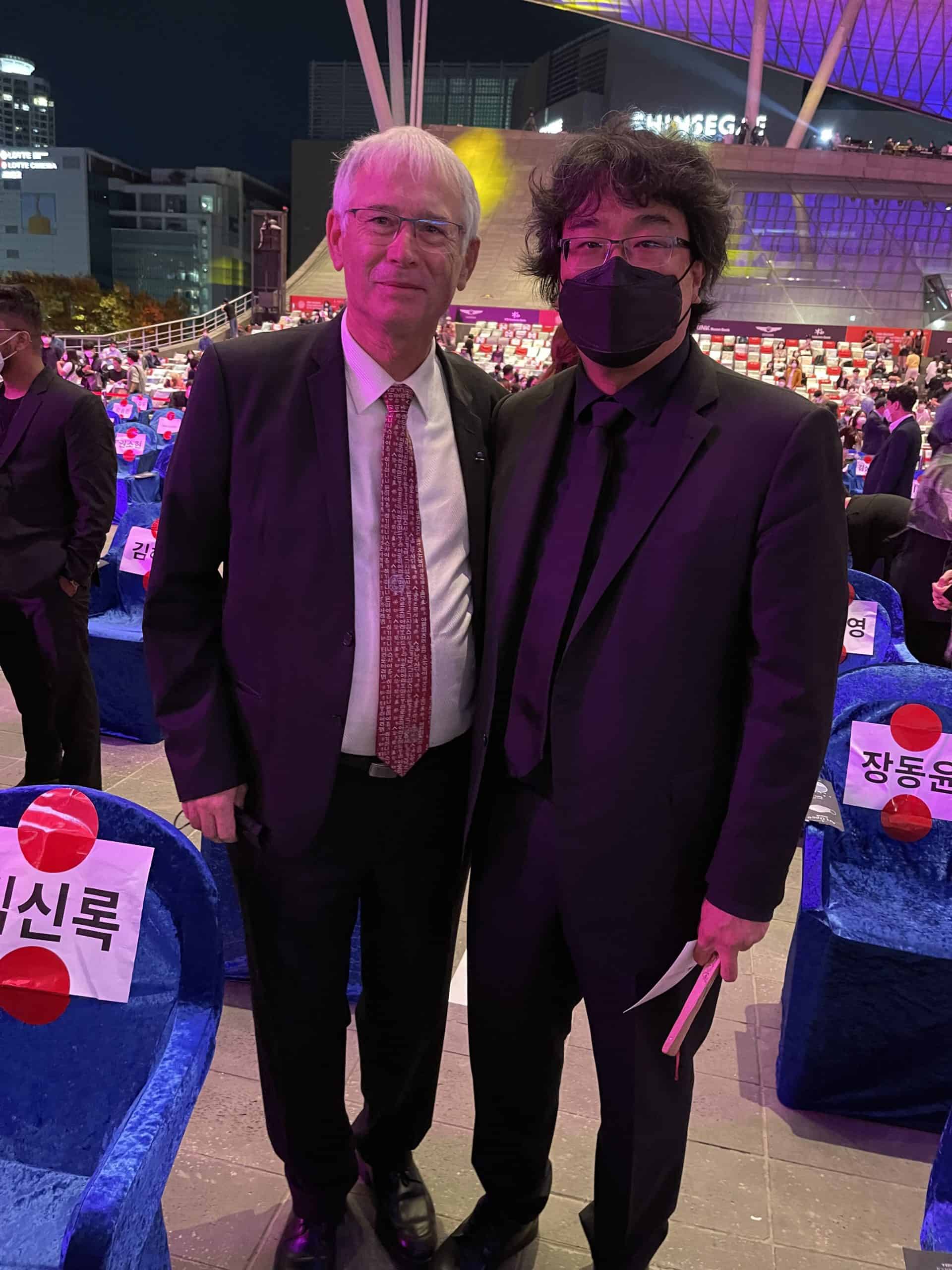
This edition was unusual, particularly due to Covid. How did the festival handle the pandemic ?
Like many festivals and especially in Asia, the BIFF had to deploy a lot of energy to allow non-Koreans to participate in the festival. In this country where the French usually do not need a visa, it was necessary to obtain the K-ETA and above all to avoid quarantine on arrival. In addition to being vaccinated with the correct vaccine, a test was required before our departure, on arrival with containment until the result and six days later. Flights to Korea were few. The professionals present were really motivated to get through these often stressful constraints and unfortunately, there were few of them. Not all filmmakers vaccinated with Russian or Chinese vaccines were able to come to Korea.
On site, temperature checks were made at each entry into a public place, the obligation to fill out a form indicating the day, time, name and first name, mobile number, or a contact person. Wearing a mask was compulsory everywhere, including in the street. In addition to your ticket, you had to scan your badge each time you visit a cinema or other festival venue to indicate your presence, to indicate the numbered place of your seat. After each screening, the cinemas were disinfected by staff dressed all in white like cosmonauts … we can tell ourselves that we did not take a lot of risks by coming to Korea!
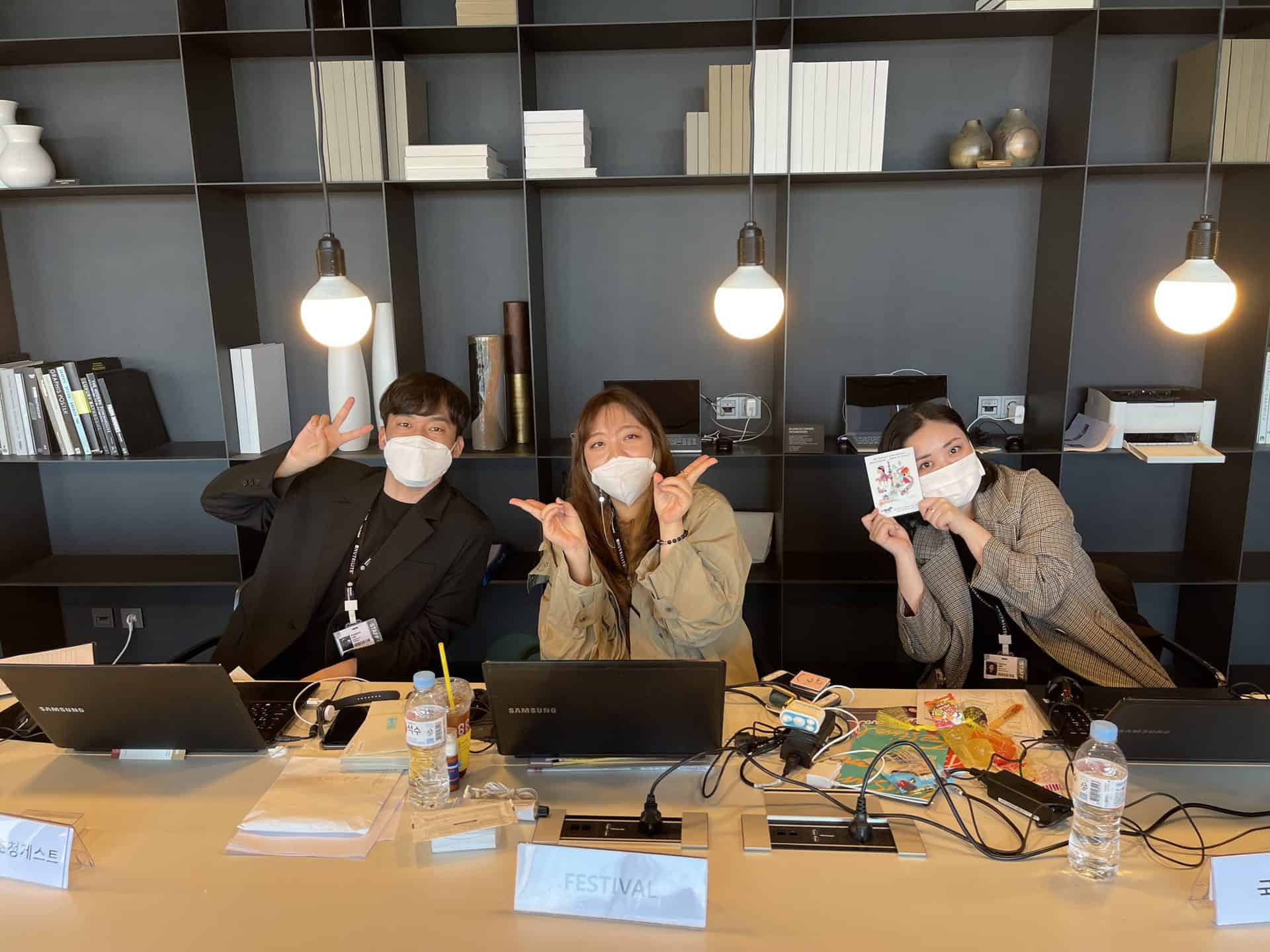
BIFF staff and volunteers went out of their way to be available and cheerful. Obviously there were no evenings, those moments that are so important in a festival to facilitate meetings between film professionals. Only five open-air Happy Hours on the roof of the Festival office building were held from 11 a.m. to 2 p.m. Restaurants were closed after 10 p.m. and there could not be more than four around a table. All these constraints, evidently, discouraged many professionals. Only the fans of BIFF made the trip.
The film market shrank like hell. It was essentially “online”. Only the Asian Project Market was held in person in the lounges of the Paradise Hotel. The BIFF spent a lot of energy to maintain the link with the public, in particular through the Questions / Answers organized after certain sessions with the directors, actors and producers present who came to defend their films.
Much emotion at the opening ceremony this year, with the presentation of the Korean Cinema Award to the late Korean producer Lee Choon-yun and the Best Asian Filmmaker of the Year awarded to the immense Im Kwon-taek by Bong Joon -ho, Cannes 2019 Palme d'Or and Im Sang-soo, Honorary Cyclo d'Or Vesoul 2016.
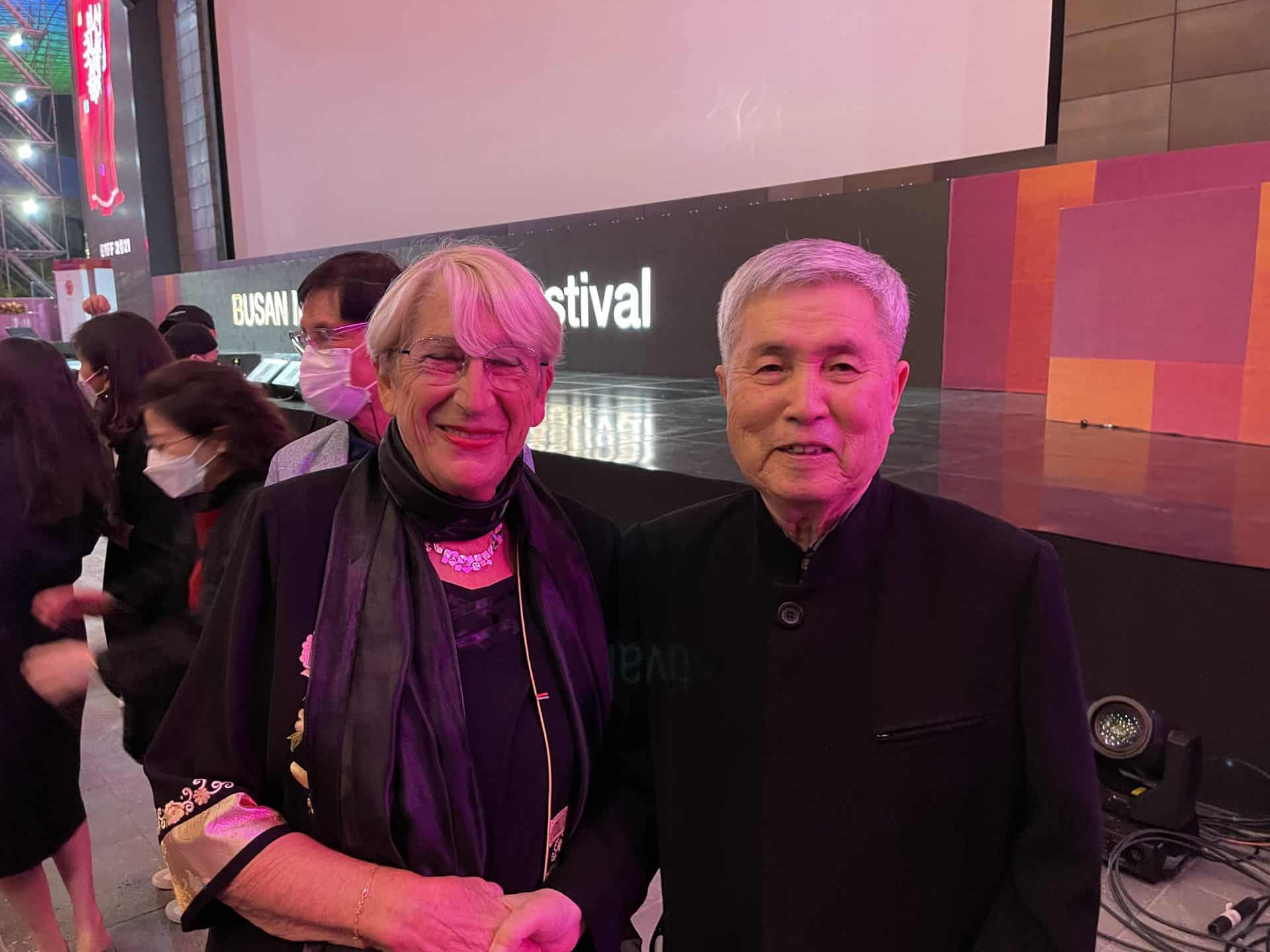
Among the highlights of the 26th BIFF: Korean Bong Joon-ho gave a cinema lesson as part of a Master Class, as did Japanese Ryusuke Hamaguchi, also presenting his last two films, Wheel of Fortune and Fantasy and Drive my car.
Likewise that of French Leos Carax, who came to Busan to present Annette, to the delight of moviegoers. His Master Class was sold out. Many Koreans we meet say that France is the country of cinema.
How was the programme this year ? Are there any movies that stood out to you ? And what about the Korean movies in the programme ?
This year, as always, the selection of the lineup was of exceptional quality. The opening film was “Heaven: to the Land of Happiness” the latest opus of Im Sang-soo, labeled Cannes 2020, with two sacred monsters Choi Min-sik (Old Boy) and Park Hae-il (The Host), tasty thriller with stripping humor.
The following days saw a series of cinema screenings, less than in previous years, however, less late at night and not some mornings. But the public has found its way back to the theaters, a young audience. The room gauge is halved. Every second seat is occupied. The organizers of the BIFF had the good idea to place a poster of one of the films in the selection on the vacant seats.
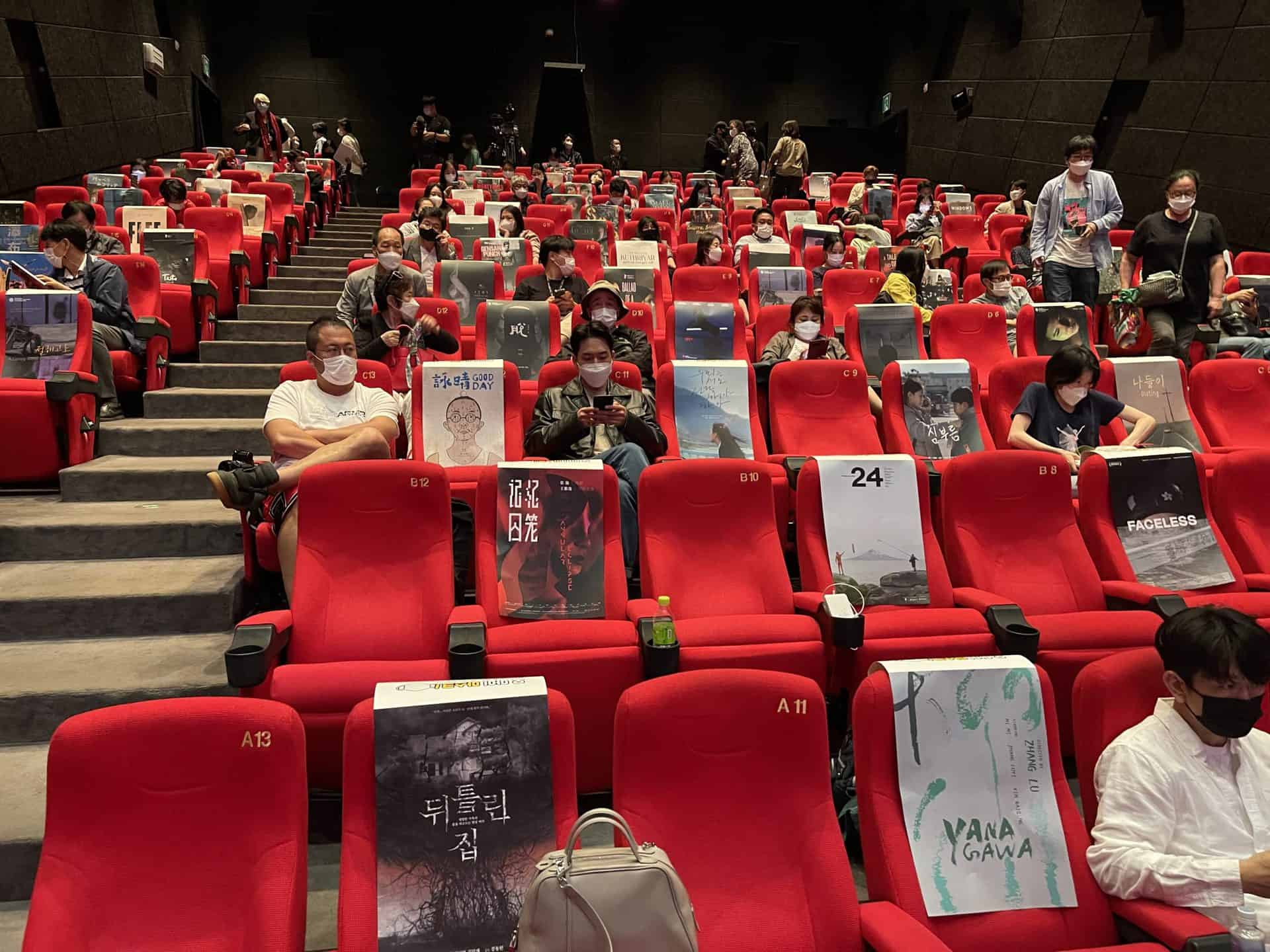
The 192 films in the selection are divided into the following sections: Gala presentation, Icons, A Windows on asian cinema / Kim Ji-seok nominees, A window on asian cinema, New currents, Korean cinema today – Panorama, Korean cinema today – Vision, World cinema, Flash Forward, Wide angle – Korean short film competition, Wide angle – asian short film competition, Wide angle – Documentary competition, Wide angle – Documentary showcase, Open cinema, Special program in focus 1: wonder Women's movies: The Best Asian Films by female directors , Special program in focus 2: New voices, Chinese films, On screen.
Among the most interesting films we note:
– Wheel of fortune and fantasy by Hamaguchi Ryusuke,
– Funny boy by Deepa Mehta,
– One second by Zhang Yimou,
– Yanagawa by Zhang Lu,
– Gensan Punch by Brillante Mendoza,
– No Land's Man by Mostafa Sarwar Farooki,
–The Rapist by Aparna Sen,
– Riverside Mukolitta by Ogigami Naoko,
– The Falls by Chung Mong-hong,
– White Building by Neang Kavich,
– Yuni by Kamila Andini,
– Photocopier of Wregas Bhanuteja,
– Red Pomegranate by Sharipa Urazbayeva,
– The Apartment With Two Women by Kim Se-in
– and Farewell, My Hometown by Wang Er Zhuo.
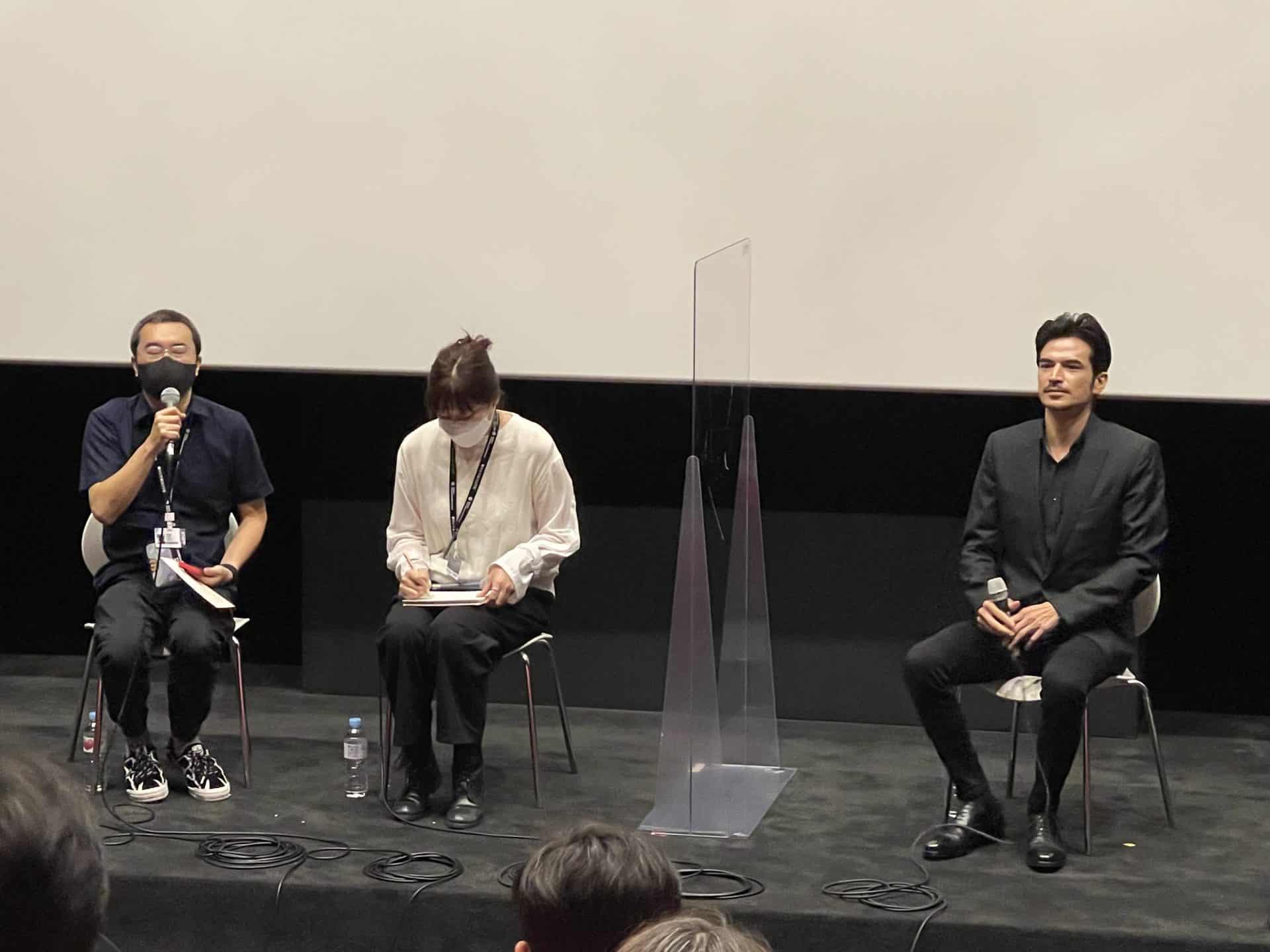
These last two films won the New Currents Prize tied at the closing ceremony by Cristina Nord, director of the Berlinale Forum, member of the jury, in the absence of President Deepa Mehta. The latter sent a filmed message, like many other directors who were unable to attend.
Among the Korean films that we saw three particularly caught our attention, demonstrating the vitality and talent of young Korean filmmakers:
–Doom Doom by Jung Wonhee,
–Through My Midwinter by Oh Seongho,
–The Apartment With Two Women by Kim Se-in
What is your opinion about the current state of Korean cinema ?
Despite the pandemic, the Korean film industry continues to show astonishing vitality. Its palette is wide: from blockbusters to arthouse cinema to genre cinema. Many Korean films seen at the 26th BIFF tackle societal issues treated with intelligence and finesse, denoting great artistic sensitivity.
I am struck by the large number of young female directors with promising talents: Kim Mi-jo (Gull), Hong Sung-eu (Aloners), Jung Wonhee (Doom Doom), for example, alongside equally talented young directors. Korean cinema has nationally confirmed directors such as Shim Hye-jung (A Bedsore, Kimchi, Heels over Head, Camellias in bloom, …). When will we see an internationally recognized Korean director like the Hong Konger Ann Hui, the Japanese Naomi Kawazé, the Iranian Rakshan Bani-Etemad, the Turkish Yesim Ustaoglu, the Indian Aparna Sen or Deepa Mehta?


